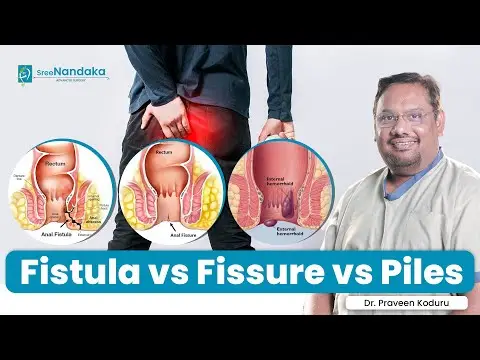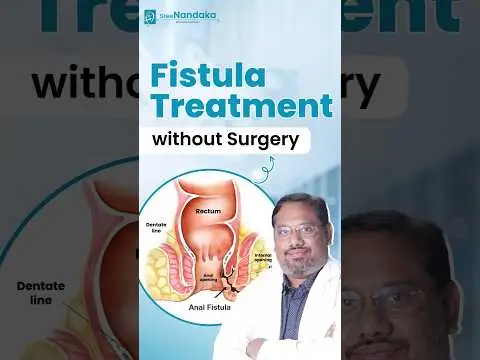What is an Obstetric Fistula?

Obstetric fistula is an enervating, female reproductive health condition, an injury that can occur as a complication of extended and obstructed vaginal delivery. In essence, it is an unusual opening or passageway created between the vagina/uterus and the urinary/excretory system organ close to it. It can have a crippling effect on the affected woman, but still, many women neglect it.
Types of Obstetric Fistula
There are four kinds of obstetric fistula, based on their location of formation:
Vesicovaginal fistula (between vagina and urinary bladder)
Urethro-vaginal fistula (between vagina and urethra)
Rectovaginal fistula (between vagina and rectum)
Vesicoureteral (between the uterus and urinary bladder).
How Does It Happen?
A fistula in the birth canal is usually caused by prolonged, obstructed labour. Some of the factors contributing to obstructed labour include pregnancy in adolescent girls before their pelvis is completely developed, twin pregnancy, malnourishment, poor health of the woman, and breech position of the baby. If obstructed labour is left untreated for long, the obstruction can interrupt the blood supply to the tissues in the woman’s pelvis leading to tissue necrosis and their shedding to leave a hole called fistula.
In developing countries where there is availability for advanced medical services and experienced gynaecologist surgeons to perform Caesarean sections, obstetric fistula is virtually no more prevalent. Mostly, this condition is noticed in poor or marginalised young women belonging to countries like Asia and Sub-Saharan Africa with underdeveloped medical facilities or who cannot afford medical services.
Other potential causes of an obstetric fistula are injury during an obstetric/gynecological surgery, malignancy or radiation therapy for cancer, infection, genital mutilation, or sexual violence faced by women. If one is suffering from this health concern and looking for its treatment, then they can visit Sree Nandaka Advanced Surgery and can get in touch with Best Fistula Treatment Doctors in Hyderabad. The experts at the hospital can help one with this condition treatment using the most advanced technology and deliver them with best surgical outcomes.
Symptoms of Obstetric Fistula
The creation of an abnormal passage between the vagina and the urinary bladder/urethra/ rectum would cause the unnatural leakage of urine and/or faeces. This means women would get constantly wet and soiled and smell awful. As a result, they may face social isolation, depression, and financial setbacks.
Diagnosis of Obstetric Fistula
The gynaecologists in Hyderabad at Sree Nandaka Advanced Surgery physically examine the vaginal walls of the patient to diagnose obstetric fistula. They may order the patient for blood and urine tests to check for vaginal infection. To spot damaged tissues, X-ray and MRI scans may be recommended. To know the type and size of the fistula, the surgeon would perform an endoscopy.
Obstetric Fistula Treatment With Laparoscopy Surgery in Hyderabad
The most effective solution for obstetric fistula is a surgical closure or reconstructive repair surgery. Laparoscopic surgery is an ideal way for successful obstetric fistula repair. At Sree Nandaka Advanced Surgical Centre, we have highly trained and skilled specialists in obstetric fistula laparoscopic surgery in Hyderabad.
Preparation for the Surgery
The Top Obstetric Fistula Doctor in Hyderabad will provide the patient with pre-operative instructions during an initial consultation. The instructions generally include the following:
- Arrange for someone to drive home following the surgery and take care at home afterward.
- Avoid intake of any blood thinning medications, supplements, or substances.
- Do not drink or eat anything for at least 6-8 hours before the surgery.
- Avoid smoking.
The Surgical Procedure
The obstetric fistula laparoscopic repair surgery in Hyderabad is performed under general anesthesia at Sree Nandaka Advanced Surgery. It can be carried out using different approaches. Firstly, the surgeon makes multiple keyhole incisions in the area where the fistula is. Through one of the incisions, the surgeon inserts a laparoscope- a thin tube fitted with a camera and light, to visualise the fistula and to guide the surgeon during the procedure. Next, the surgeon inserts surgical tools through other incisions to work on the obstetric fistula. To make the surgeon’s work easier, a harmless carbon dioxide gas is filled inside to increase the space of work. Thereafter, the surgeon uses the slender surgical tools to treat obstetric fistula.
The different surgical approaches that the surgeon chooses to perform based on the location and severity of the fistula include:
- Medical-grade plug/3-D mesh- The plug can be placed into the fistula or a surgical mesh can be fixed from above, bottom, and centre of the fistula to close the fistula and allow it to heal.
- Medical glue- This can be applied to the fistula to close it and encourage healing.
- Opening of fistula- The surgeon makes a small cut along the length of the fistula to let it heal.
- Drain insertion- For an infected fistula, the surgeon places a drainage tube or a thin, surgical cord called a stetson into the fistula to allow the infected material to drain out of the fistula and allow its healing.
- Ileostomy- In case the patient has a fistula that has caused stool to enter the intestine, the surgeon performs an ileostomy. The surgical procedure is performed to reposition the small intestine up to the stomach wall. This will help the stool to exit the stomach into a medical pouch which can be emptied and cleaned. It is done temporarily to let the fistula heal.
- Fistulotomy- Rectovaginal fistulas repair in Hyderabad by this technique and immediate reconstruction with an advancement flap coverage.
Once the fistula is treated, the surgeon closes the skin incisions with surgical staples, liquid skin glue, or Steri-strips. A sterile bandage or surgical dressing may be used to cover the incision sites.
Result, Recovery, and Aftercare
Following the surgery, the patient may go back home on the same day. Rarely, does the patient get a hospital discharge after a one-night stay. The wound from the fistula or the surgical incision site usually heals in 4-6 weeks but may take up to 9 weeks to completely heal.
The patient is advised to take proper bed rest for 2 weeks and even abstain from sexual intercourse for about 3-4 months. There is no need to have a specific diet plan, only a healthy, fibre-rich diet is recommended. A urinary catheter may be required for a short period until the bladder is ensured to be properly functioning. The patient may be given stool softeners to avoid painful or difficult bowel movements following the surgery. Furthermore, the patient must avoid strenuous physical activities, take proper wound care, and avoid hot baths. The patient must sleep on their back and wear loose-fitting clothes until the incision site heals.
Beyond surgery, the fistula survivors must have their psychosocial and socioeconomic needs well addressed to ensure their complete healing and recovery. Counselling and other forms of support can help.
Benefits of Obstetric Fistula Laparoscopy Surgery
- Improved life quality of the patients
- Women can lead a healthy, married life and get more social
- A minimally invasive surgery with few minor cuts and no lengthy recovery
- Minimal pain or discomfort
- Quick operation time.
Frequently Asked Questions
1. How can I prevent obstetric fistula?
Prevention is a key to eliminating cases of obstetric fistula. Obstetric fistula is preventable largely by delaying the time of first childbearing; stopping the harmful traditional practices, and prompt access to obstetric care. One of the important preventive measures that need to be taken by a woman expecting a child is proper prenatal care with early identification of at-risk pregnancy and keeping a referral to tertiary centres for vaginal delivery. For obstructed labour treatment, Caesarean sections need to be more widely available as an option in every hospital.
2. What are the complications of obstetric fistula?
Obstetric fistula, if left untreated, can cause constipation, sore genitals (skin excoriations and ulcerations) because of deposition of urinary ammonia on the skin, abscess formation (if infected), painful intercourse, secondary infertility, damage of reproductive organs, kidney damage, and mental or emotional issues like depression, social isolation, and stigmatisation.
3. What is the ideal repair time for obstetric fistula?
The full recovery of the tissues after surgical repair for obstetric fistula takes about 3 months.
To receive the best Fistula Treatment & Surgery in Hyderabad, visit Sree Nandaka Advanced Surgery.
The clinic boasts a team of highly skilled Fistula surgeon doctors in Hyderabad who are trained in general surgery, gynecology, and laparoscopic surgery, providing patients with excellent surgical results. Visit now to learn more!

Difference between Fistula, Fissure & Piles | Fissure treatment in Hyderabad | Dr. Praveen Koduru

Fistula Treatment without Surgery || HOW TO CURE FISTULA || Dr. Praveen Koduru
Leave us a message and our team will get in touch with you.
Address:
Plot no 770, Jayabheri Park,
Behind BigBazar, Kompally,
Hyderabad, Telangana 500014, India.
Email ID
sreenandaka@gmail.com
Contact No.
+91-9000835000,
+91-9000861000
